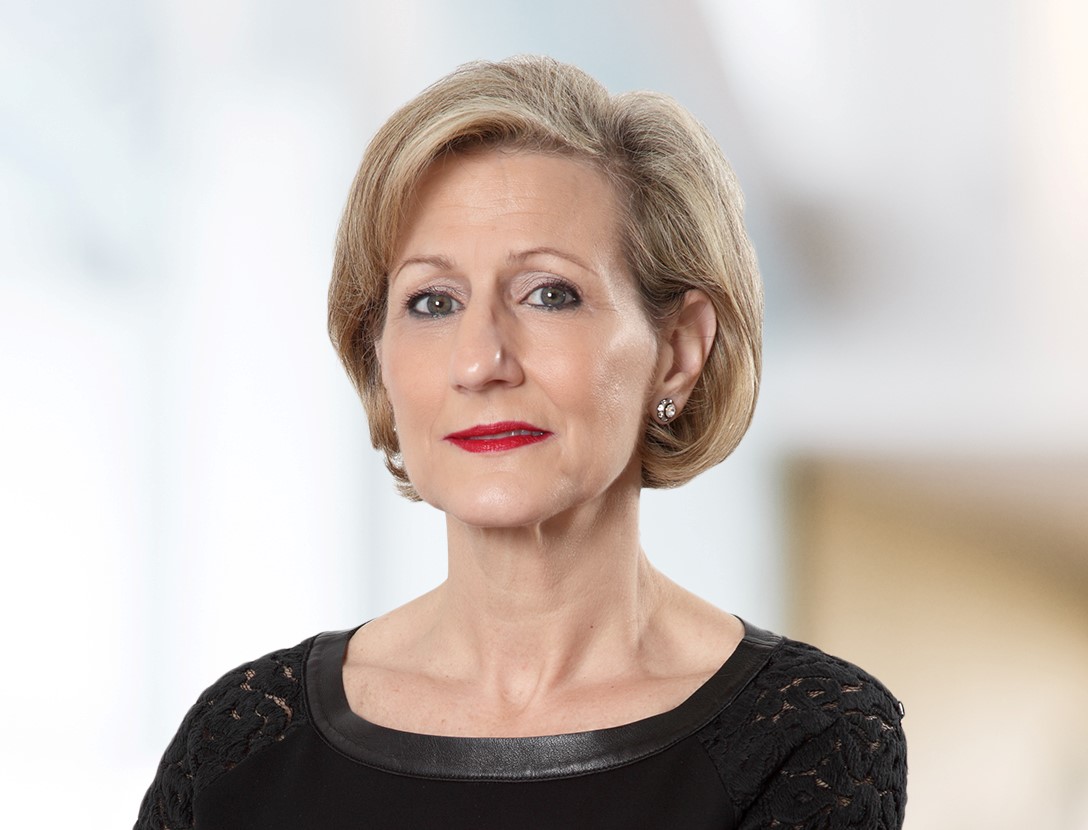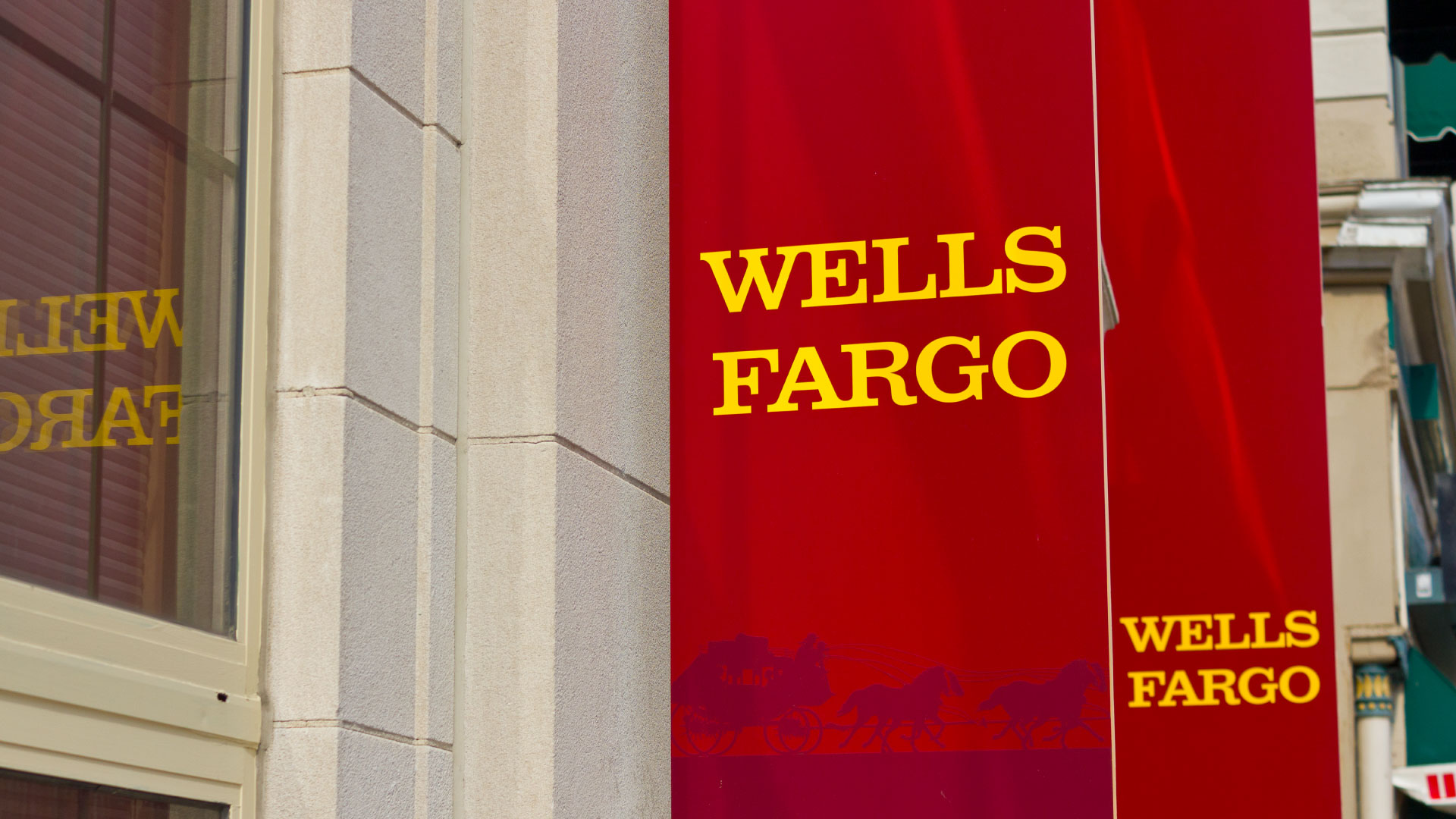
Alma Angotti Talks Tech and Her Mission to Keep the Financial System Safe
In this edition of Women in Finance, Radar sits down with Alma Angotti, Managing Director of Risk and Compliance at Navigant. We discuss her expansive career, the current challenges facing the compliance space, and the line between being effective and being likeable as a woman in the industry.
Starting out, you studied political science and economics at college. After that, you studied law. You were laying the perfect foundation to specialize in financial compliance. Was that your intention? Did you have that career path in mind from the outset?
Not really. Most of my career was not planned, but more a function of taking advantage of interesting opportunities that presented themselves. Most of my jobs were sort of a surprise. I find that if you plan too carefully, you miss things.
After college you were an associate at Howrey. You jumped straight from that into a role as Counsel at the US Securities & Exchange Commission. What inspired that move? Was there anything in particular that drew you to such a big institution?
I went to Howrey after law school and to the SEC after Howrey. I was interested in public service and the responsibility I could get in the government. One of my good friends had joined the Enforcement Division and loved it. And it turned out to be just the right move for me.
How did the SEC develop and progress in the time you were there? What are your most prominent memories of your time there?
It was an exciting time to be in the Enforcement Division at the SEC. The Division was expanding to keep up with the growth in the market and to be able to investigate the critical issues of the day, like insider trading and junk bonds. My strongest memory is of my colleagues. We were young and yet we had a tremendous amount of responsibility. We owned our cases, we developed them, we made important decisions; we were not just carrying a partner’s briefcase. My colleagues were great lawyers, very smart, and we had a strong sense of mission and a lot of fun. We really felt that what we were doing was important. We had the responsibility for determining what happened, who was responsible, and deciding the right thing to do about it. My SEC colleagues are still some of my close friends.
Who was your regulatory superhero while you were at the SEC in terms of achievement or mentorship or integrity, or some other attribute?
There were so many talented and committed people at the SEC so that is a hard question to answer. But I would have to choose Bill McLucas, former Director of the Enforcement Division, now at WilmerHale. I reported to Bill the entire time I was at the Commission. Bill is a great lawyer and great manager. He had respect for the lowest level staff lawyer on a case because he understood that the staff lawyer really knew the facts. He could, in five minutes, ask the most relevant question about a case. He always acted with the utmost integrity and fairness. I really learned how to be tough, but fair, by working for Bill. He was also a lot of fun and a champion for the women who worked with him in a Division that was dominated by men.
Linda Thomsen, former Enforcement Division Director, is a brilliant lawyer. She led the Division with poise and good humor, and was responsible for some of the SEC’s most important enforcement actions. I was also fortunate to work with Commissioner Elise Walter at both the SEC and FINRA. She is one of the smartest women I know and a talented leader. I learned a lot from both of them.
After the SEC, you moved to FinCEN as Senior Enforcement Counsel and helped implement a new enforcement program to deal with violations of the Bank Secrecy Act. What was it like, having been at SEC for 11 years, to sort of start again and overhaul their programs? Did you face any challenges?
The new challenges were the main reason that I took the job. It was exciting to design an entire enforcement regime at an agency with a different jurisdiction and regulatory scheme, using what I had learned at the SEC. We brought some of the first big enforcement actions under the Bank Secrecy Act. After September 11, we were responsible for drafting multiple regulations to implement the USA Patriot Act. There was a lot of work to do in a short period of time and we felt like it was very important work. That sense of public service, of mission, has always been important to me.
Over your time in enforcement and compliance what would you say has been the biggest change you’ve seen to the industry?
Technology, technology, and technology. From marketing, to compliance, to the design of new products and services; technology has affected everything. Fraud and transaction- monitoring systems are beginning to use artificial intelligence and machine learning. Investment advice can be provided by algorithms. You can borrow money through online peer-to-peer lending. Cryptocurrency and digitized assets may decrease the cost and increase the ease of cross-border transactions. We are also seeing financial institutions focus on technology to simplify front-end client acquisition and engagement. The fintech mantra is: little to no friction in the client experience. Of course, simplifying customer on-boarding and the customer experience will have to be accomplished while managing the potential fraud, financial crime, and market risk.
You’re currently Managing Director and Co-lead of Global Investigations and Compliance at Navigant. What’s the most rewarding part of your role at the moment?
I love working with the team. The people in our practice are so smart and have a diversity of experience that enables us to provide our clients with stellar advice and operational assistance. I feel like we have managed to capture that sense of mission that I felt at the government. It is also rewarding when we really help a client identify what caused a compliance failure and to fix it, manage a regulatory issue, or successfully complete remediation of a compliance program. I know it sounds corny, but the financial institutions are helping to keep the world’s financial systems a bit safer and it is gratifying to be part of that effort.
How about the most challenging part of your role?
It can sometimes be difficult to convince a client to proactively enhance compliance programs and upgrade compliance technology, absent regulatory pressure.
As a woman who has worked her way up to some of the most senior positions, what do you think are the biggest challenges for senior women in a notoriously male-dominated industry?
There were more challenges when I was a younger lawyer, but I think things have improved since then. There is, however, a double standard for women in positions of authority that has been well-studied and well-documented. We can be judged harshly for actions that are completely acceptable for our male colleagues, like negotiating for a higher salary. Having to walk the thin line between being effective and being likeable can be a little tiring, but it is certainly not insurmountable. Everyone just has to be aware of it.
Has there ever been a time where you felt limited or held back because you’re a woman, especially when implementing new initiatives or applying for senior roles etc?
I have been fortunate that I always had wonderful sponsors and mentors, both men and women, and never felt limited. Or maybe I was just too busy to notice.
Do you have any tips or advice for women who are looking to work in finance or compliance?
I think the important thing is to really understand the business and how it should work. Learn as much as you can from as many people as you can. And always be willing to take the hard projects. You can make yourself indispensable that way.
We recently interviewed FINRA’s Susan Schroeder and she highlighted a New York Times article that said finance and law are “greedy professions” as they require 24/7 engagement. Would you agree with that? Have you found a way to strike a work/life balance or do you think you really have to sacrifice one for the other?
I do think finance and law are greedy professions. I think we believe they require 24/7 engagement, but I am not sure that they really do. I always say that I am not a transplant doctor, and nobody will die if I can’t be reached.
I also don’t think you can really “balance” work and life, but you do have to manage both. Sometimes your family will be more important and sometimes work will be more important. I think you must figure out what is important to you and not try to do everything. For example, I like to cook, so family dinners were important to me, so I made that a priority. Other things, I just let go. There were lots of dust bunnies in my house and athletic equipment everywhere. I just ignored that.
I was also lucky. I was able to work a variety of modified schedules of one type or another while my three daughters were growing up, and my husband was always supportive of my career. I also had a wonderful nanny when my children were young. When I was ready to be full time and full steam ahead, I happened to be in an area of regulation that was in demand.
We’re hearing a lot from the regulators lately about non-financial misconduct and the need to monitor conduct. Do you think change is needed and where do you feel misconduct is most egregious?
I think regulators are emphasizing that all the wonderful controls and policies will not make up for a poor culture of compliance. In all areas of compliance, management needs to make employees accountable for doing the right thing. All Boards of Directors and Senior Managers say the right thing, but the issue is whether that message really filters down. If you have a harassment policy, for example, but everyone looks the other way, the policy is meaningless. If the policy says relationship managers are supposed to know the customers, but there is no disadvantage to them if they do not ask the hard questions of their customers, the policy is meaningless. I believe that more companies and institutions are realizing this and making an effort to show their employees that compliance is everyone’s job, not just words on a page.
Technology is developing quickly in the enforcement and compliance space – both in the means that people use to communicate, but also in the way companies monitor their staff. Do you think this is a good thing for the industry? What extra challenges does it present?
I do think it is generally a good thing for both the financial institutions and their customers. For example, recording conversations with clients can prove that the registered representative did tell the client about the risk of a particular investment. Alternatively, recorded conversations can also prove that traders are manipulating prices. Companies can detect if employees email company information to an outside email account. Employees who want to break the rules or break the law may have to spend more time finding a way around the detection technology and that may well deter some of them.
It feels like the financial criminals get more sophisticated and more advanced and are winning the war in terms of their “take” in traditional financial services – how can the industry reverse this trend and work better to identify and seize dirty and corrupt funds in the system?
We are always a bit behind the parade. When we determine how to find the bad activity, the criminals change their methods. It will be a never-ending battle as long as there is money to be made from criminal activity. I think the industry is finding benefits of investment in technology, such as the use of artificial intelligence and machine learning.
If you were a CEO of a financial services company right now, what would most disturb your sleep in terms of the potential for financial crime to integrate with your business?
I think the most difficult risk to manage is cyber. I would be concerned about hacking and computer and account intrusion and fraud. Cybersecurity is requiring a huge investment of resources. Without a deep technology background, I would worry about whether I truly understood the risk and whether I could adequately evaluate mitigation efforts. Proactive and seamless communication between the risk and technology functions helps to understand and mitigate risks without disrupting the business.
Regulators are demanding more thought, due diligence and proactivity from wholesale capital markets firms around the potential for financial criminals to use their firms to conduct market manipulation and insider trading? What is driving this and what should firms do?
I think that market manipulation and insider trading have always been a focus. It has been a critical element of the success and a strength of US capital markets, giving investors faith in the integrity of the market and a sense that everyone plays by the rules. I think the difference, again, is technology. With data mining and other technologies, the regulators may be better able to identify irregular trading and they expect the firms to invest in the technology and human resources to do the same.
Compliance culture – how does a firm build one, measure it, and is it easy to do a smell test when you arrive at a firm as a potential client? What are the tell-tale signs?
A culture of compliance is hard to build and can be hard to measure. As I said before, there must be some expectation that employees will do the right thing, and they must be held accountable if they do not. We can often tell there is a poor culture of compliance. For example, it is telling if employees do not know the rules, do not care about the rules, or feel that the business will always win over compliance concerns. There are sometimes employees who are uncomfortable with lax compliance and they will tell us their concerns. Other times, we can identify that there are no consequences for employees who do not take their compliance training seriously or do not respond to compliance inquiries.
We can tell if the “exceptions” to a policy seem to outnumber the times it is applied. We can tell if compliance or risk management functions are understaffed or undertrained or lack the resources they need to do their jobs. We can tell if the compliance and risk management leadership does not have direct access to executive management or to the board of directors. These are the types of things that can indicate a poor culture of compliance.
How do you relax?
I like to go hiking or otherwise be outdoors doing something active. I also love to read.
What do you like or not get about London now that you have moved there?
I love the mix of old and new. I am a history nerd so walking past buildings constructed hundreds of years ago is just a thrill for me. London is a walkable city and there is always something interesting to see. Good food, good theater, and good museums.
Gordon Gekko or Bobby Axelrod?
I am showing my age here, but Gekko!







